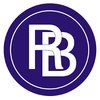Filter interviews by
Raptakos Brett and Company Process Engineer Interview Questions and Answers
Raptakos Brett and Company Process Engineer Interview Experiences
1 interview found
I applied via Referral and was interviewed before Dec 2021. There were 2 interview rounds.

(3 Questions)
- Q1. Basic chemical engineering questions
- Q2. Pump calculations and line hydraulic
- Q3. Psv calculations. Over pressure scenarios
Interview Preparation Tips
Top trending discussions






Interview questions from similar companies

I applied via Naukri.com and was interviewed in Oct 2022. There were 3 interview rounds.

(1 Question)
- Q1. Basic chemical engineering
(1 Question)
- Q1. On the basis of written activity in CV
Interview Preparation Tips

I applied via Walk-in and was interviewed before Sep 2023. There was 1 interview round.
(5 Questions)
- Q1. Scale up technology
- Q2. Reaction kinetic
- Q3. Crystallisations and about PAT tool
- Q4. Heat and mass balance
- Q5. PFD and P&ID drawing along with BFD
Interview Preparation Tips

I applied via Naukri.com and was interviewed in Jun 2024. There was 1 interview round.
(9 Questions)
- Q1. What is tip speed, and how do you calculate it from the laboratory to the pilot plant?
- Ans.
Tip speed is the speed at the outer edge of a rotating object, calculated by multiplying the radius by the angular velocity.
Tip speed is the speed at the outer edge of a rotating object.
It is calculated by multiplying the radius of the object by the angular velocity.
In the laboratory, tip speed can be calculated using the formula: Tip Speed = 2 * π * Radius * RPM.
In the pilot plant, the same formula can be used to calc...
- Q2. What are heat transfer and mass transfer, and what is their significance?
- Ans.
Heat transfer is the movement of heat from one place to another, while mass transfer is the movement of mass from one place to another. Both are important in various engineering processes.
Heat transfer involves conduction, convection, and radiation.
Mass transfer involves diffusion, convection, and molecular diffusion.
Significance of heat transfer includes maintaining temperature in chemical reactors, HVAC systems, etc.
...
- Q3. What actions have you taken in troubleshooting?
- Ans.
I have taken various actions in troubleshooting, including analyzing data, conducting experiments, and collaborating with team members.
Analyze data to identify potential issues
Conduct experiments to test hypotheses
Collaborate with team members to brainstorm solutions
Utilize problem-solving skills to troubleshoot complex problems
- Q4. What are Power Number and Flow Number?
- Ans.
Power Number and Flow Number are dimensionless numbers used in fluid mechanics to characterize the flow behavior of fluids in different systems.
Power Number is a dimensionless number used to characterize the power consumption in a mixing system. It is defined as the ratio of the power input to the fluid to the product of the impeller speed, impeller diameter, and fluid density.
Flow Number is a dimensionless number used...
- Q5. How do the P/V ratio and tip speed affect the selection of scale-up, and what criteria do you use for this selection?
- Ans.
P/V ratio and tip speed impact scale-up selection in process engineering.
P/V ratio affects the level of shear stress in the system, influencing mixing and reaction rates.
Higher tip speeds can lead to increased shear forces and heat generation, impacting product quality.
Selection criteria include desired mixing intensity, heat transfer requirements, and shear sensitivity of the product.
For example, in pharmaceutical man...
- Q6. What is HAZAOP, and what is the procedure for it?
- Ans.
HAZOP stands for Hazard and Operability Study, a systematic method to identify potential hazards and operability issues in a process.
HAZOP is a structured and systematic examination of a process to identify potential hazards and operability issues.
It involves a team of experts analyzing the process step by step to identify deviations from the design intent.
The team uses guide words such as 'no', 'more', 'less', 'as wel...
- Q7. What is your job role?
- Ans.
As a Process Engineer, my job role involves designing, implementing, and optimizing industrial processes to ensure efficiency and quality.
Designing and implementing processes to improve efficiency and quality
Optimizing existing processes to reduce costs and increase productivity
Troubleshooting issues and implementing solutions to improve process performance
Collaborating with cross-functional teams to ensure smooth oper...
- Q8. What calculations do you perform when transferring a new product from the lab to the plant?
- Ans.
Calculations include scale-up factors, equipment sizing, material compatibility, process optimization, and cost analysis.
Determine scale-up factors to ensure the lab process can be replicated in the plant
Size equipment appropriately for the larger scale production
Check material compatibility with plant equipment and process conditions
Optimize the process parameters for efficiency and quality
Conduct cost analysis to det
- Q9. How to calculate distillation rate?
- Ans.
Distillation rate can be calculated by dividing the amount of distillate collected by the time taken to collect it.
Calculate the amount of distillate collected in a given time period.
Divide the amount of distillate by the time taken to collect it to get the distillation rate.
Express the distillation rate in units such as liters per hour or gallons per minute.

Interview Questionnaire
1 Question
- Q1. Data integrity, types of qualifications, types of equipments handled, types of solvents handled, basic safety in field, projects you've handled, documentation, trouble shooting, shutdown and restart activ...

I appeared for an interview in Jun 2017.
Interview Questionnaire
1 Question
- Q1. Power distribution devices Ac & DC difference , transformer , machines
Interview Preparation Tips
Experience: Replied the answer to above asked questions
Skills: Patience, Patience, Punctuality

I applied via Walk-in and was interviewed before Mar 2023. There was 1 interview round.
(2 Questions)
- Q1. Laminar vs Turbulant Flow
- Ans.
Laminar flow is smooth and orderly, while turbulent flow is chaotic and unpredictable.
Laminar flow occurs at low velocities and is characterized by parallel layers of fluid moving in the same direction.
Turbulent flow occurs at high velocities and is characterized by irregular fluctuations and mixing of fluid particles.
Laminar flow is more energy-efficient and less noisy compared to turbulent flow.
Examples: Laminar flow...
- Q2. Explain How Generator Works
- Ans.
Generators work by converting mechanical energy into electrical energy through electromagnetic induction.
Generators have a coil of wire that rotates within a magnetic field
The rotation of the coil induces a current in the wire
This current is then collected and transferred as electrical energy
Examples include hydroelectric generators, wind turbines, and diesel generators

I applied via Newspaper Ad and was interviewed before Mar 2023. There was 1 interview round.
Easy train distances , height , clock , degree

(2 Questions)
- Q1. Tell me about your self?
- Ans.
I am a dedicated and experienced Project Engineer with a strong background in managing engineering projects from conception to completion.
I have a Bachelor's degree in Engineering and X years of experience in project management.
I am proficient in using project management tools such as Microsoft Project and Primavera P6.
I have successfully led cross-functional teams to deliver projects on time and within budget.
I have e...
- Q2. Tell me about your experience?
(1 Question)
- Q1. Expected salary?
- Ans.
Negotiable based on experience, industry standards, and benefits package.
Salary expectations are influenced by factors such as experience, education, location, and company size.
Research industry standards and average salaries for Project Engineers in your area.
Consider the benefits package offered by the company, such as healthcare, retirement plans, and bonuses.
Be prepared to negotiate based on your qualifications and
(1 Question)
- Q1. Final offer letter acceptance letter.

I applied via Company Website and was interviewed in Feb 2024. There was 1 interview round.
(6 Questions)
- Q1. Why you choose abbott ?
- Q2. Why do think you are the good fit for this position ?
- Q3. Tell me a time when you are a leader of team ?
- Q4. Which types of your leadership’s style ?
- Q5. What do you expect to learn at Abbott ?
- Q6. Whywe should hire you ?
Raptakos Brett and Company Interview FAQs
Tell us how to improve this page.
Raptakos Brett and Company Interviews By Designations
- Raptakos Brett and Company Area Manager Interview Questions
- Raptakos Brett and Company QA QC Executive Interview Questions
- Raptakos Brett and Company QA Executive Interview Questions
- Raptakos Brett and Company Hvac Technician Interview Questions
- Raptakos Brett and Company Medical Representative Interview Questions
- Raptakos Brett and Company Trainee Chemist Interview Questions
- Raptakos Brett and Company Process Engineer Interview Questions
- Raptakos Brett and Company Executive Interview Questions
- Show more
Interview Questions for Popular Designations
- Process Engineer Trainee Interview Questions
- Process Associate Interview Questions
- Chemical Process Engineer Interview Questions
- Junior Process Engineer Interview Questions
- Processing Executive Interview Questions
- Process Developer Interview Questions
- Assistant Manager Process Engineering Interview Questions
- Process Quality Engineer Interview Questions
- Show more
Interview Questions from Similar Companies
Raptakos Brett and Company Process Engineer Reviews and Ratings
based on 1 review
Rating in categories
|
Medical Representative
86
salaries
| ₹2.2 L/yr - ₹4.3 L/yr |
|
Executive Production
49
salaries
| ₹3.2 L/yr - ₹6.6 L/yr |
|
QA Officer
41
salaries
| ₹2 L/yr - ₹5.1 L/yr |
|
Area Sales Manager
34
salaries
| ₹3.7 L/yr - ₹8.6 L/yr |
|
Area Manager
33
salaries
| ₹4.5 L/yr - ₹9 L/yr |

Cipla

Dr. Reddy's

Lupin

Zydus Lifesciences
- Home >
- Interviews >
- Raptakos Brett and Company Interview Questions >
- Raptakos Brett and Company Process Engineer Interview Questions











